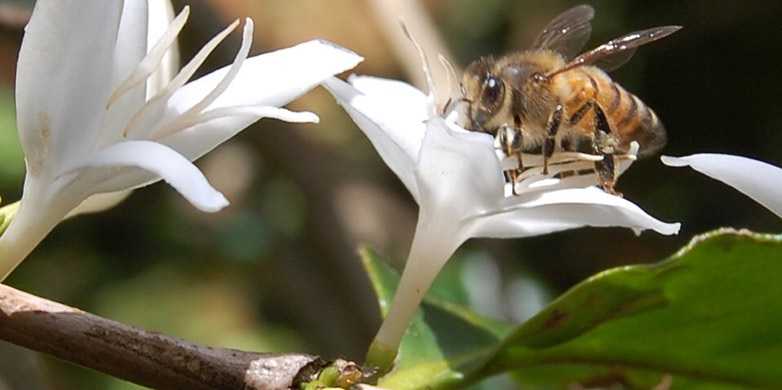BOGOTÁ, Colombia – Colombian coffee farming is home to at least 88 species of native bees, according to research by the National Coffee Research Center (Cenicafé, scientific arm of the Colombian Coffee Growers Federation [FNC]) partnering with Bayer AG of Germany. The study identified over 250 species of insects visiting coffee flowers – throughout the day at different times – including beetles, flies, bedbugs, butterflies, moths, ants, wasps, and bees.
“The bee group was the most abundant and diverse; 88 native species were recorded, which are natural inhabitants of the Colombian coffee ecosystems and are distributed from the north to the south of the country,” the study details.
This figure accounts for 16% of the species of bees described for Colombia, about 550, mostly native.
The research, led by Zulma N. Gil and Pablo Benavides, researchers from the Entomology Discipline, under the coordination of the Cenicafé director, also quantified the contribution of all these insects to production of coffee cherries.
Bees and other floral visiting insects account for 16% of all coffee fruit set, a figure higher than the up to 10% that was believed, contributing to production of cherries that have earned Colombian coffee its renown as the best in the world.
Bees as valuable coffee pollinators
Pollination is a key ecosystem service, on which the healthy diversity of plant and animal species depends. It is a natural process of pollen transfer between plants, allows production of seeds and fruits, and influences productivity of many crops.
75% of the world’s crops and about 80% of flowering plants depend on pollination by animals, with bees and bumblebees being the most recognized for their abundance and importance.
Before this research, it was believed that insects were responsible for less than 10% of coffee fruit set, and their effect on coffee production in Colombia had not been studied as the coffee tree is self-pollinated and, therefore, participation of pollinators had been underestimated.
The great diversity of insect species visiting coffee flowers in Colombia, especially bees, is also due to integrated weed and pest management, which avoids indiscriminate application of chemicals and during the coffee crop flowering, which favors floral diversity for different visiting species and preserves pollinators of coffee systems.
These results confirm that adequate technical management of coffee plantations (adjusted to weather and cultivation conditions) is not only the key component of the More Agronomy, More Productivity, More Quality strategy, but also promotes and protects biodiversity in coffee regions, favors presence of pollinating species, and is an example of a production that is friendly to the environment, producers and consumers.
















